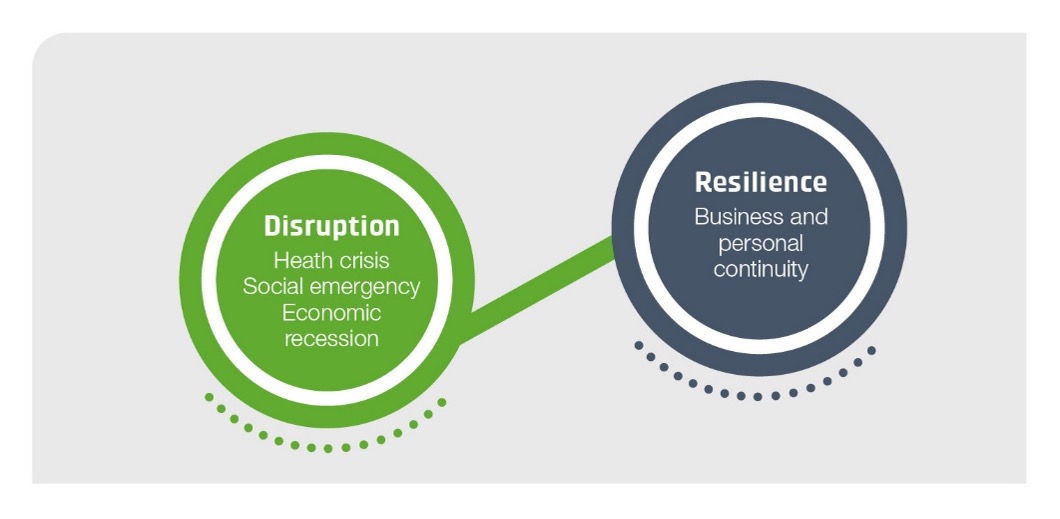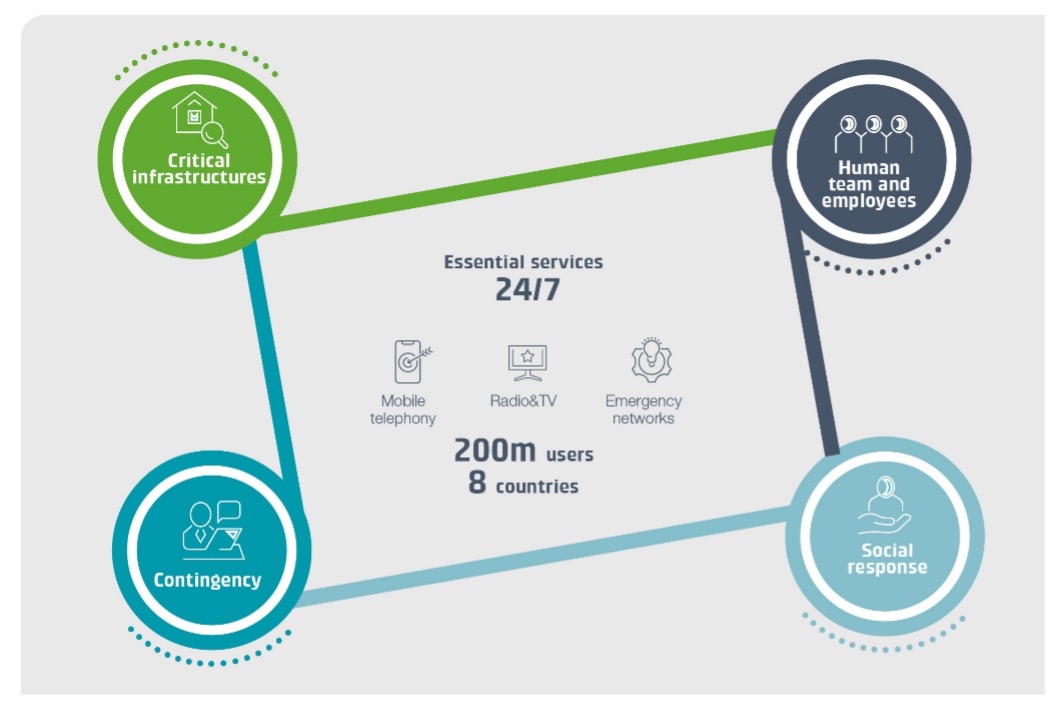COVID-19 global scenario
An exceptional context
The COVID-19 pandemic constitutes an extraordinary phenomenon that has led to a dramatic loss of human lives worldwide and is affecting societies and economies at their core. In 2020 COVID-19 affected almost all countries and more than 50 million people around the world.
Likewise, the pandemic is changing the way people work and run business, study or interact at a dizzying rate. In this context, people across the globe rely on technology for information, for social distancing, and working from home.

Never before has maintaining connectivity been so important, not only in the many entertainment options offered through streaming or social networks, but also by serving the curricular needs of millions of students, providing information or maintaining work, family or interpersonal options and relations through instant audio-visual communication. Here, telecommunications infrastructures play a fundamental role.
Cellnex’s response
As a telecommunications infrastructures operator for radio and TV (DTT), voice and data, and communication networks for security forces (police and fire brigades) and emergencies (medical and maritime rescue), Cellnex Telecom has ensured continuity of services 24/7, serving more than 200 million people around Europe.

Central Territory Manager
Cellnex Telecom
Cellnex Ireland
Critical infrastructures
At Cellnex Spain, a group of around 150 engineers and about 50 technicians works together in the Service Operation Centre (SOC) performing the essential tasks to ensure service continuity around the clock, evaluating the state of networks, data transmission, the operation of DTT and digital radio or the I.T. security of their own facilities and third-party network service, for fibre or radio customers.
Another essential service is maritime communication, which Cellnex has been operating under a public order from the Spanish Government for ten years. The company provides uninterrupted radio coverage to 35 stations distributed throughout the territory to aid navigation and guarantee safety with three territorial centres on each of the coastlines (Coruña, Valencia and Las Palmas). This is an essential service providing weather data or information on possible incidents and communication with vessels with direct contact with maritime rescue.
All these actions are in line with the Agreement for personal and corporate connectivity signed in March 2020 with the Spanish Ministry of Economic Affairs and Digital Transformation and other relevant operators in the sector, such as Telefonica, Vodafone, Orange or MasMovil.
This agreement complements Royal Decree-Law 8/2020 of 17 March 2020, on extraordinary urgent measures to face the economic and social impact of COVID-19 to encourage operators who have signed this agreement to take on voluntary commitments to guarantee personal and corporate connectivity within the COVID-19 crisis; especially with regard to networks that support emergency services.
After careful consideration and given the exceptional COVID-19 crisis situation, Cellnex took the decision of helping their clients in improving their coverage and in overcoming congestion problems they faced with based on the significant increase in data consumption this crisis situation triggered. In this connection, Cellnex offered its clients a grace period for 2-6 months on all new collocations in Cellnex sites.
Contingency Plan
Like all large companies, Cellnex has solid contingency plans but, as has occurred in all large companies, the reality far exceeded even the most pessimistic scenarios of any hypothetical emergency.
In this exceptional situation, Cellnex has developed a Global Contingency Plan to guarantee the continuity of critical services in all countries and critical infrastructures in Spain, for Cellnex and for suppliers. Moreover, Cellnex has defined a recovery plan at the corporate level, which has been implemented in all countries.
Two committees were set up to respond to crisis situations in the Cellnex group, guaranteeing the provision of critical services:
- Global crisis committee.
- Local crisis committees reporting daily to the Global committee
Human team and employees
Since the beginning of the pandemic, Cellnex's priority has been to guarantee the health and safety of employees. Thus, their 1,955 employees around Europe who are not part of the operations team, have been working remotely since the second week of March, one week before the Spanish Government forced companies to telecommute.
As a consequence, most training has been online, with periodic virtual meetings held as a differentiating element with respect to the previous year. This way of working allows a change in mindset that allows the company to change its mindset and move with the times by holding meetings using online platforms and become more cooperative and flexible in our relationships.
Moreover, in Spain, Cellnex has implemented a specific action plan that includes health, organisational, and risk prevention/H&S measures to reduce the risk of contagion according to the COVID-19 safe protocol. This plan has obtained TÜV Safe Protocol 19 certification for the Corporate headquarters and Business Unit Spain in their territorial headquarters.
This information is explained in detail in Chapter 5: 5. Being a facilitator of social progress.
Social response: Cellnex’s COVID-19 Relief Initiative
In the face of the unprecedented crisis caused by the COVID-19, Cellnex has acted proactively, allocating significant resources and concrete actions in social matters (collaborations with hospitals in Spain, Italy and France, and other actions with the different countries of the Group) to mitigate the effects of the pandemic. This collaboration is just one more expression of the company’s sense of purpose, which goes beyond our responsibility to guarantee a solid and healthy return to shareholders and investors.
In this regard, the company has set up several collaborative projects in the countries where it operates under the project “Cellnex’s COVID-19 Relief Initiative”, a fund of 10 million euros over 2020-2021, 5 million of which is earmarked for medical research and 5 million for social action projects, especially focused on the most fragile and exposed groups and people, and to facilitate digital inclusion. This information is explained in detail in Chapter 5: Being a facilitator of social progress.

